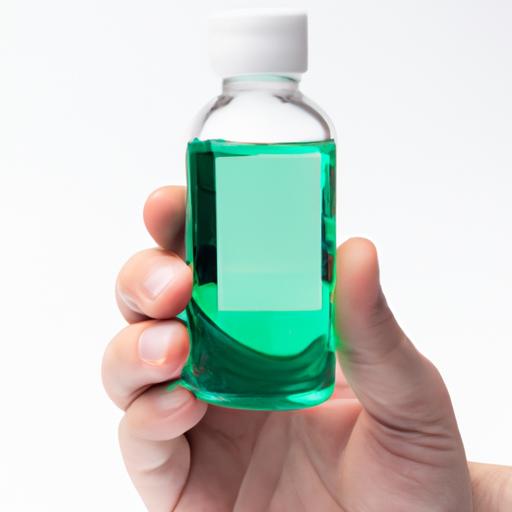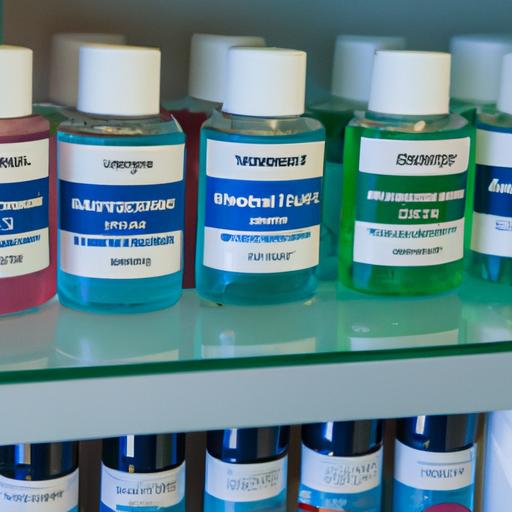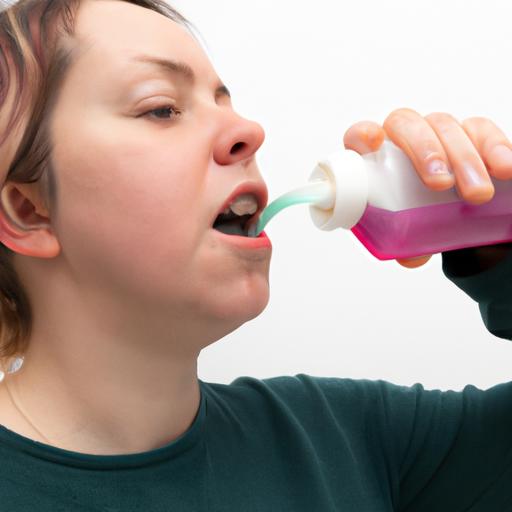Discover the benefits of using Mouthwash for chemotherapy-related dry mouth. Learn how to choose the right product and use it effectively for relief.
Chemotherapy is a vital treatment option for cancer patients, but it often comes with various side effects. One common side effect is chemotherapy-related dry mouth, also known as xerostomia. This condition occurs when the salivary glands are damaged during treatment, leading to a reduced production of saliva. Dry mouth can cause discomfort, difficulty in speaking and swallowing, and an increased risk of oral infections. To alleviate these symptoms, mouthwash specifically designed for chemotherapy-related dry mouth can be a game-changer. In this article, we will explore the importance of using mouthwash, guide you in choosing the right product, and provide tips for effective usage.
Introduction to Chemotherapy-Related Dry Mouth
Definition and causes of chemotherapy-related dry mouth
Chemotherapy-related dry mouth is a condition characterized by a decrease in saliva production due to the damaging effects of chemotherapy on the salivary glands. Saliva plays a crucial role in maintaining oral health by lubricating the mouth, aiding digestion, and preventing the growth of bacteria. When the salivary glands are compromised, patients experience a persistent dryness in their mouth, which can lead to various complications.
Impact of dry mouth on chemotherapy patients
Chemotherapy-related dry mouth can significantly impact a patient’s quality of life. The absence of sufficient saliva can cause discomfort, difficulty in speaking, chewing, and swallowing. It can also lead to a sore throat, hoarseness, and an altered sense of taste. In severe cases, dry mouth can even increase the risk of dental decay, gum disease, and oral infections. Hence, it becomes crucial to address this condition effectively.

Mouthwash plays a crucial role in relieving chemotherapy-related dry mouth
Understanding the Importance of Mouthwash for Chemotherapy-Related Dry Mouth
Role of mouthwash in relieving dry mouth symptoms
Mouthwash formulated for chemotherapy-related dry mouth is specifically designed to combat the discomfort caused by reduced saliva production. These mouthwashes contain ingredients that help moisturize the mouth, stimulate saliva production, and provide a protective barrier against oral infections. They can provide temporary relief, improve oral health, and enhance the overall well-being of patients undergoing chemotherapy.
Benefits of using mouthwash during chemotherapy treatment
Using mouthwash designed for dry mouth relief offers several benefits for chemotherapy patients. Firstly, it helps alleviate dryness, providing immediate relief from discomfort. Secondly, these mouthwashes can enhance oral hygiene by reducing the risk of tooth decay, gum disease, and oral infections. Moreover, they can improve taste perception, making meals more enjoyable for patients. Regular use of mouthwash can also contribute to the overall healing process, ensuring patients can focus on their treatment without the added burden of oral discomfort.

Consider important factors when selecting the right mouthwash for dry mouth relief
Choosing the Right Mouthwash for Chemotherapy-Related Dry Mouth
Factors to consider when selecting mouthwash for dry mouth relief
When choosing a mouthwash for chemotherapy-related dry mouth, there are several factors to consider. Firstly, opt for alcohol-free mouthwashes as alcohol can further dry out the mouth. Look for products that contain moisturizing agents like glycerin and aloe vera, which help retain moisture in the mouth. Additionally, seek mouthwashes that have fluoride to protect against tooth decay. It is advisable to consult with your healthcare provider or dentist to determine the most suitable mouthwash for your individual needs.
Key ingredients to look for in mouthwash for chemotherapy patients
Effective mouthwashes for chemotherapy-related dry mouth commonly contain ingredients such as:
- Hyaluronic acid: This natural substance helps retain moisture in the mouth, promoting hydration and reducing dryness.
- Xylitol: Known for its cavity-fighting properties, xylitol helps prevent tooth decay and stimulates saliva production.
- Biotene enzymes: These enzymes mimic the natural enzymes found in saliva, promoting oral health and providing relief from dry mouth symptoms.
- Calcium phosphate: This ingredient helps remineralize teeth and strengthen tooth enamel, protecting against decay.

Proper usage of mouthwash is essential for optimal results in managing chemotherapy-related dry mouth
How to Use Mouthwash Effectively for Chemotherapy-Related Dry Mouth
Step-by-step guide on using mouthwash for optimal results
To make the most of your mouthwash for chemotherapy-related dry mouth, follow these steps:
- Start with a clean mouth: Brush your teeth gently with a soft-bristle toothbrush and fluoride toothpaste before using mouthwash.
- Measure the appropriate amount: Pour the recommended amount of mouthwash into a cup, as directed on the product label.
- Rinse thoroughly: Swish the mouthwash around your mouth for the recommended duration, typically 30 seconds to 1 minute. Ensure it reaches all areas of your mouth, including the gums and tongue.
- Spit out the mouthwash: After rinsing, spit out the mouthwash into a sink. Do not swallow it.
- Avoid eating or drinking immediately: To allow the mouthwash to work effectively, avoid eating or drinking for at least 30 minutes after rinsing.
Tips and precautions for using mouthwash during chemotherapy
While mouthwash can provide relief from dry mouth symptoms, it is essential to keep certain tips and precautions in mind:
- Consult with your healthcare provider or dentist before starting any new oral care routine, including the use of mouthwash.
- Follow the recommended frequency and dosage as indicated on the product label or as advised by your healthcare professional.
- Maintain good oral hygiene by brushing your teeth gently twice a day with a soft-bristle toothbrush and fluoride toothpaste.
- Stay hydrated by sipping water frequently throughout the day.
- Avoid mouthwashes that contain alcohol, as they can further contribute to dryness.
- Consider using a water flosser in combination with mouthwash for a more comprehensive oral care routine.
In conclusion, chemotherapy-related dry mouth can cause significant discomfort and oral health complications for patients. However, using mouthwash specifically designed for dry mouth relief can provide much-needed comfort and restore oral health. By choosing the right mouthwash, understanding its benefits, and utilizing it effectively, chemotherapy patients can alleviate the discomfort associated with dry mouth and focus on their treatment with greater ease. Remember, consult with your healthcare provider or dentist for personalized guidance on finding the most suitable mouthwash for your needs. Let mouthwash become your ally in combating chemotherapy-related dry mouth and ensuring a healthier oral environment.
For more information on the benefits of mouthwash and other oral care tips, visit BestWaterFlosserHQ.com.




